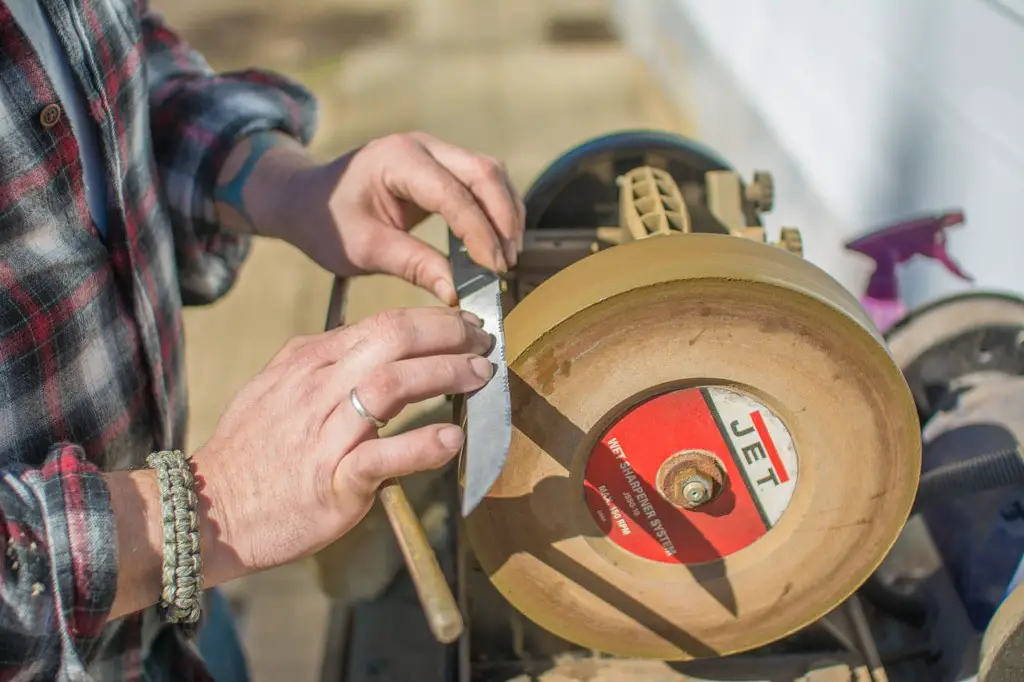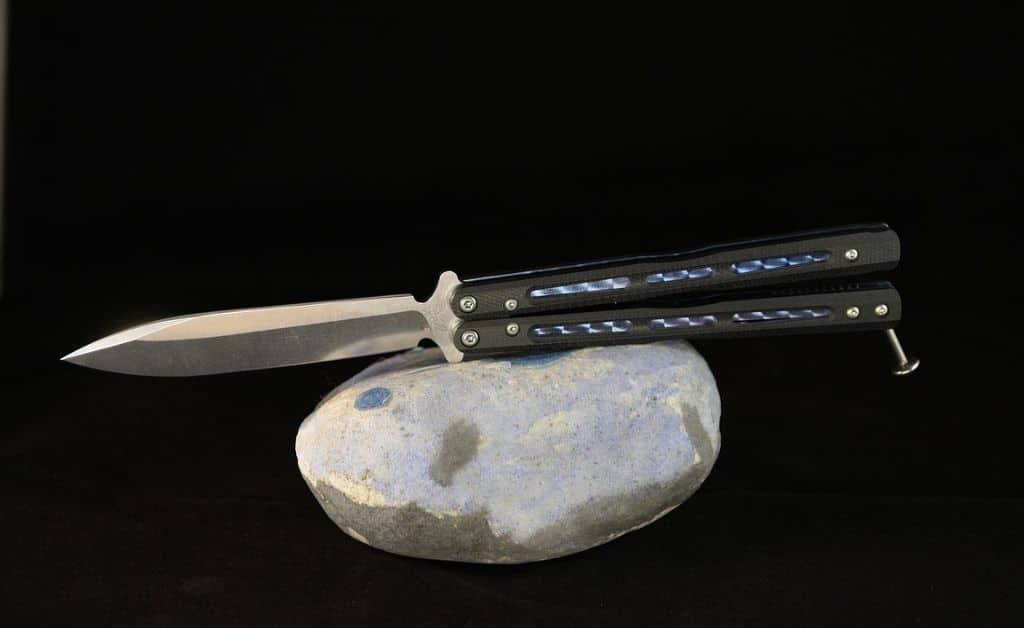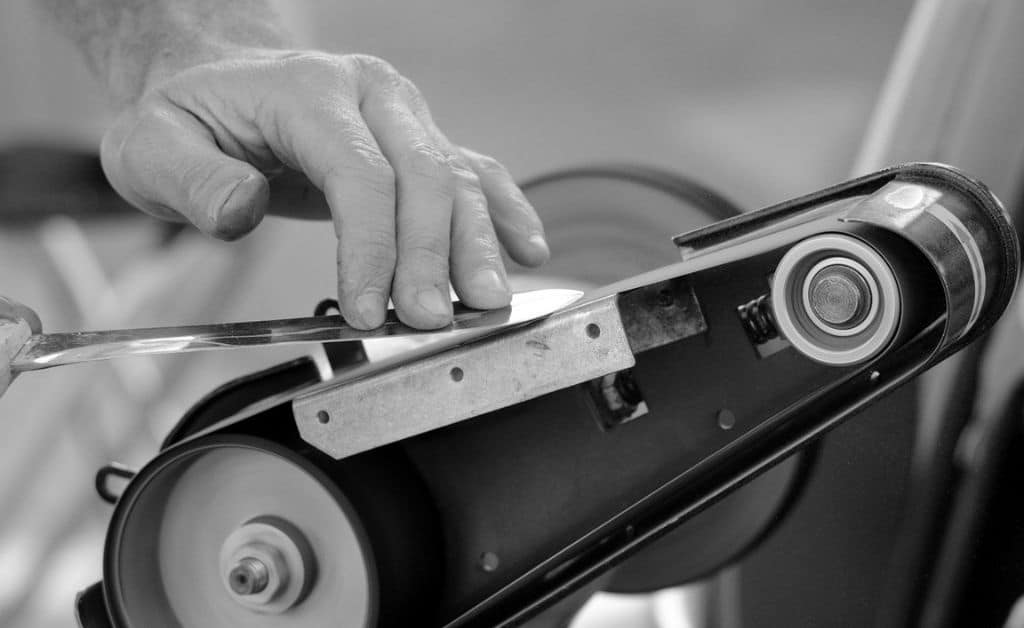Annually, The average amount people spend on buying knives is 65 Billion Dollars. Only a modest percentage of families in the US don’t own a knife. This industry is massive.
However, many knife owners are not familiar with the concept of sharpening their knives. The feeling you experience when you cut a tomato with a dull knife is horrible. On the other hand, the smoothness a sharp blade provides is incomparable with a dull one.
Many people who own knives own them for self-defense purposes. Now, imagine a scenario where you need to use your blade against someone, and it’s broken. That will be terrible. You solely put yourself and others around you at higher risk. In this post, I’ll cover the reasons to sharpen your knife and how often you should sharpen your knife.
Should I Sharpen My Knife?

Sharpening the vast majority of knives is mandatory. Using a dull knife increases the risk of injuring yourself and others. The pressure you apply when cutting with a broken blade is way higher than the pressure you apply with a sharp knife. For these reasons, you should sharpen your knife.
That applies to the people who own a pocket knife. Although such a knife doesn’t require high maintenance, sharpening it may be a wise idea. Imagine a situation where a hostile attacks you. Most likely, you’ll react the same way I would. You would pull out your knife and defend yourself.
A sharp knife is a must for both the intimidation method and the offensive method. The intimidation method is reliant on the fact that you are confident. If your blade can’t cut a tomato smoothly, you’ll most likely be confident using it. Therefore, to use the intimidation method, you need to ensure that your knife is sharp.
Additionally, if you end up using your weapon against an unfriendly, disabling him should be your priority. That’s the whole point. Therefore, to use such a weapon properly, you need to sharpen your knife.
Lastly, when you assist others in a sticky situation, you want your weapon to function suitably. There are many weapons out there that, without proper maintenance, will lose lethality. That will lead to it being nonfunctioning. As a result, you’ll merely end up injuring others indirectly. That will lead to you not achieving what you wanted in the first place, to defend others and yourself.
Is sharpening a knife Bad for it?
When sharpening a knife, you remove some of the material that’s on it. As a result, it may not be as sharp and lethal as it was pre-sharpening. Therefore, sharpening a knife too often might be bad for the blade.
Sharpening a tool may be tricky. It’s an old skill that many people are not familiar with it. In many situations, it can be the difference between avoiding injury and end up injured. Thus you want to ensure that you’re not moving around with a dull knife.
Contrary to that, the last thing you want is to over-sharp your blade. When you do, you’re increasing the risk of the knife not functioning. If you’re using a dull kitchen knife, the odds of you cutting yourself increase.
The pressure you apply when using a dull blade is higher than with using a sharp one. Hence assure your kitchen knife is ready to go. That way, you make sure nothing severe will happen to you.
How often should you sharpen your knife?

Experts recommend you sharpen your knife professionally twice a year. If you overdo it, you may remove some of the material that’s on the blade. That will cause the knife to break earlier than it would’ve been naturally.
On my website, I have a whole different post about this topic specifically. I encourage you to read this post about How Often Should I Sharpen My Knife?
Every knife owner must know this information. That is crucial to do. If you ultimately don’t sharpen your knife, you’re putting yourself and others using it at risk.
The single best piece of advice I can give you is to create a rule and follow it. My principle is to try and cut a tomato. If the blade doesn’t cut it smoothly, you need to sharpen it. However, if the knife cuts through the tomato smoothly, you’re in the clear. As time passes, you’ll gain more experience in the subject. Later, you’ll be able to create a principle to follow.
Can you sharpen knives too much?
As I’ve mentioned in the last section, Sharpening your knife incorrectly or too often can cause the blade to break. Eventually, you want to follow the manufacturer’s instructions to maximize the time you can use the knife.
As the owner of the knife, it’s your responsibility to ensure that the blade is sharp. That way, if you use it for self-defense purposes, you know that when the time comes, and you need to use it, it will be as sharp as it needs to be. You’ll defend yourself and others surrounding you.
I recommend you to sharpen your knife, no matter which type it is, twice a year professionally. Moreover, if you notice any flaw in the process it cuts several objects, consider sharpening it.
In today’s era, there are plenty of services that will sharpen your knife for you. All you need to do is send them your knives in a pre-ordered envelope. After a few days, you’ll receive your blades back sharp as ever.
Lastly, it’s necessary to mention the harm you can cause by sharpening your knives too often. If you don’t follow the manufacturer’s instructions to grinding it, or you merely hone it too frequently, you’ll break it down. That will cause the material on the knife to wear off. Eventually, you’ll lose a functioning knife.
Why is my knife dull after sharpening?

Several reasons can make this problem appear. For instance, if you sharpen your blade at too high of an angle, you may cause the knife to stay dull. Moreover, if your sharpening tool is not functioning, you are up to no good.
I recommend you to see if your sharpening tool is functioning before using it. If it’s brand new, you may want to skip this check. However, if you have been using it for some time, you may want to check its functionality.
In addition, you must be familiar with the tool you’re using. That way, you won’t screw up when it comes to the sharpening process. For that reason, I encourage you to buy a knife you’ll practice sharpening at it. Later, you’ll find that to be a skill. Similar to other skills, you can practice them. The more you do it, the better you’ll get at it.
To conclude, there are plenty of reasons why your knife is not as sharp as you want it to be. Post-sharpening, ensure your tool is functioning and that you know how to use it. If you do both of these actions, you’ll avoid problems with dull knives after sharpening them.
Conclusion
Sharpening your knife is a skill. You can practice it to get better. Most families in the US own at least a single pocket knife for self-defense purposes. In addition, most of the people who read this post have a single blade. Although many people own a knife or a pocket knife, they’re not familiar with the importance of sharpening your knife.
You have responsibility. Having a dull knife is dangerous not only to yourself but to others who use this knife. If you own a pocket knife, you are putting others in danger if it’s not sharp. You want it to be lethal. If it’s not, you messed up. I oblige you to ensure that your knives are as keen as ever. That way, you’ll avoid injuries and protect others around you.

